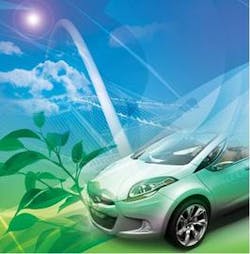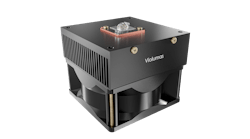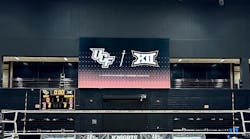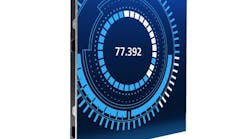Date Announced: 07 May 2009 Pittsburgh, May 7, 2009 — Underscoring its leadership in meeting market demand for sustainable products that do not sacrifice quality, Bayer MaterialScience LLC has introduced several new eco-friendly grades of its Makroblend® and Bayblend® polycarbonate blend resins.“For more than a decade, Bayer MaterialScience has been at the forefront of offering environmentally responsible materials,” said Gerry DiBattista, market segment leader, IT, Electrical/Electronics Polycarbonates, Bayer MaterialScience. “These new grades are an extension of our already-strong commitment to manufacturing eco-friendly products that maintain aesthetics, durability and longevity while also meeting the needs of our customers who are increasingly looking to boost the sustainability of their products.” The sustainable offerings include three new flame-retardant Bayblend polycarbonate/acrylonitrile butadiene styrene (PC/ABS) blend resin post-consumer recycled content grades. These are the first post-consumer recycled content products from Bayer MaterialScience:o Bayblend FR610 GR, which is a minimum of 10 percent post-consumer recycled content and at least 30 percent post-industrial recycled content for a total of at least 40 percent recycled content (meets UL 94 V0 at 1.5 mm, 5VA at 3.0 mm)o Bayblend FR630 GR, which is a minimum of 30 percent post-consumer recycled content and a total recycled content of at least 55 percent (UL 94 V0 at 1.5 mm, 5VA at 3.0 mm)o Bayblend FR632 GR, which is a minimum of 30 percent post-consumer recycled content and 55 percent total recycled content (UL 94 V0 at 1.2 mm)These new Bayblend grades maintain the properties of a typical flame-rated PC/ABS product, including good rigidity, hardness, dimensional stability, impact strength and creep resistance. The Bayblend recycled content grade products are ideal for use in housing and other electrical and lighting components, such as electrical, switch and meter housings, security and surveillance equipment, and battery housings. Other potential application areas include the IT, telecommunications and medical industries, as well as business machines like copiers, printers and scanners and electrical/electronic lighting. These Bayblend grades can help OEMs achieve a higher rating relating to the U.S. Government’s Electronic Product Environmental Assessment Tool (EPEAT) for evaluating the sustainability of specific electronics. An additional one or two EPEAT points are possible by selecting these Bayblend grades that contain post-consumer recycled materials.Bayer MaterialScience is also introducing two new bio-content polycarbonate blends containing polylactide (PLA), a polymer derived from plant materials:o Makroblend BC250 is a general purpose grade that contains 25 percent PLAo Makroblend BC400 is a general purpose grade that contains 40 percent PLA The bio-content grades can be used in wide-ranging applications such as cell phones and smart phones, portable electronics, housings and enclosures, furniture, sporting goods, toys and automotive interiors. “The bio-content PC blends do not readily decompose like straight PLA and have very good impact and stiffness properties,” added DiBattista. “They are the perfect solution for companies interested in promoting a strategy of using durable materials derived from renewable resources.” Development of these grades is part of Bayer MaterialScience’s overarching commitment to sustainability, which impacts the products it produces and the markets it serves. More information on this topic is available in a new sustainability brochure that highlights the company’s environmentally friendly solutions and technologies. Copies of the brochure can be obtained by calling 1-800-662-2927 or visiting www.bayermaterialscienceNAFTA.com.Bayer MaterialScience LLC is one of the leading producers of polymers and high-performance plastics in North America and is part of the global Bayer MaterialScience business with nearly 15,100 employees at 30 sites around the world and 2008 sales of 9.7 billion euros. Business activities are focused on the manufacture of high-tech polymer materials and the development of innovative solutions for products used in many areas of daily life. The main segments served are the automotive, electrical and electronics, construction, medical, and sports and leisure industries.Bayer Corporation, headquartered in Pittsburgh, is a subsidiary of Bayer AG, an international health care, nutrition and high-tech materials group based in Leverkusen, Germany. In North America, Bayer had 2008 net sales of approximately 8 billion euros (about $12 billion) and employed 17,000 at year end. Bayer’s three subgroups, Bayer HealthCare, Bayer CropScience and Bayer MaterialScience, improve people’s lives through a broad range of essential products that help diagnose, prevent and treat diseases; protect crops and enhance yields; and advance automobile safety and durability. Underscoring its leadership in meeting market demand for sustainable products that do not sacrifice quality, Bayer MaterialScience LLC has introduced several new eco-friendly grades of its Makroblend® and Bayblend® polycarbonate blend resins, including grades containing post-consumer recycled content and grades containing polylactide (PLA).
Contact
Bayer MaterialScience Bill Allan Phone: 412-777-5200
E-mail:[email protected]
Web Site:www.bayerus.com






